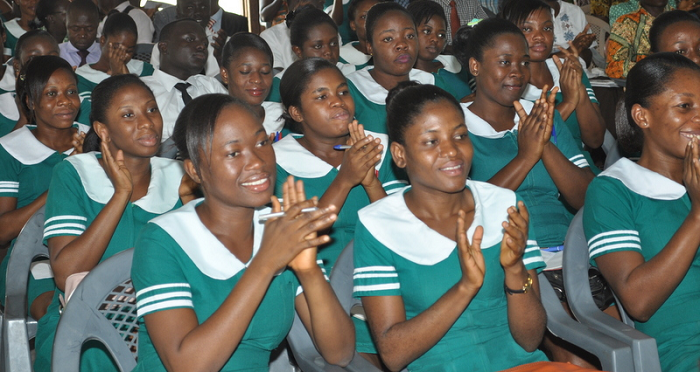
Govt approves job categorisation for nurses, midwives
The government has developed and approved the job descriptions for specialist nurses and midwives, a Deputy Minister of Health, Ms Tina Mensah, has said.
This is to differentiate between general and specialist nursing and midwifery.
Advertisement
The grades for specialist, senior specialist and consultant in the nursing and midwifery field in the healthcare system have also been established and approved by the Fair Wages and Salaries Commission (FWSC).
The conference
Ms Mensah made this known at the fourth annual general meeting and second Scientific Conference of the Ghana College of Nurses and Midwives (GCNM) in Accra.
The meeting, which brought together nurses and midwives from across the country, discussed “Maximising technology in accelerating universal health coverage (UHC): The role of nursing and midwifery in the era of specialisation”.
Read also
Barbados requests 375 Ghanaian nurses - Akufo-Addo accepts in principle
Two nurses facing disciplinary action over death of 70-year-old man
Two nurses facing disciplinary action over death of 70-year-old man
As part of the AGM, 112 associate members and 43 members were inducted into the college.
The GCNM was incepted in 2013 with the mandate to provide specialist and postgraduate education in nursing and midwifery.
It is also mandated to provide continuous professional education and also contribute to policy formulation for improved healthcare outcomes.
Specialisation
Ms Mensah said there was an urgent need for specialist nurses and midwives, considering the current demand for their services.
“General nurses, when confronted with complex situations, would have to wait for doctors to come, and in some cases it will be too late. But now with specialisation, a nurse or midwife with the specialised skills can hold the fort in the absence of a doctor.
“Nurses and midwives who specialise in a specific niche have the opportunity to become experts in their field and influence practice, education and healthcare outcomes,” she said.
She said the ministry had the urgency to work hard to achieve UHC and the Sustainable Development Goals and had, therefore, initiated a comprehensive road map for the country towards the accelerated achievement of UHC.
Challenges
Presenting her report, the Rector of the GCNM, Ms Hannah Acquah, urged the Ministry of Health to consider developing a policy to mandate nurses and midwives to specialise after their basic professional training in their areas of interest.
She said the nursing and midwifery profession in the country needed to evolve fast to be abreast of the global trends and also be equipped to provide population-specific, disease-specific, rather than general, care.
She called on the government to consider sponsoring nurses and midwives to specialise.
Touching on the challenges of the college, Ms Acquah said it did not have a permanent facility to accommodate administrative and lecture duties and also lacked vehicles to undertake monitoring and supervisory works.
Trends
The Akwamuhene, Odeneho Kwafo Akoto III, who delivered the keynote address, underscored the need for specialisation in the nursing and midwifery profession, so that nurses and midwives were not restricted.
He said there was the need for diversification in the fields of specialisation in nursing and midwifery, so that practitioners could complement the work of doctors to enable the country to achieve UHC.
“It is about time nursing and midwifery curriculum and courses were structured to have sufficient content of information technology and associated gadgets and the operating manuals used in modern healthcare delivery,” he stated.



